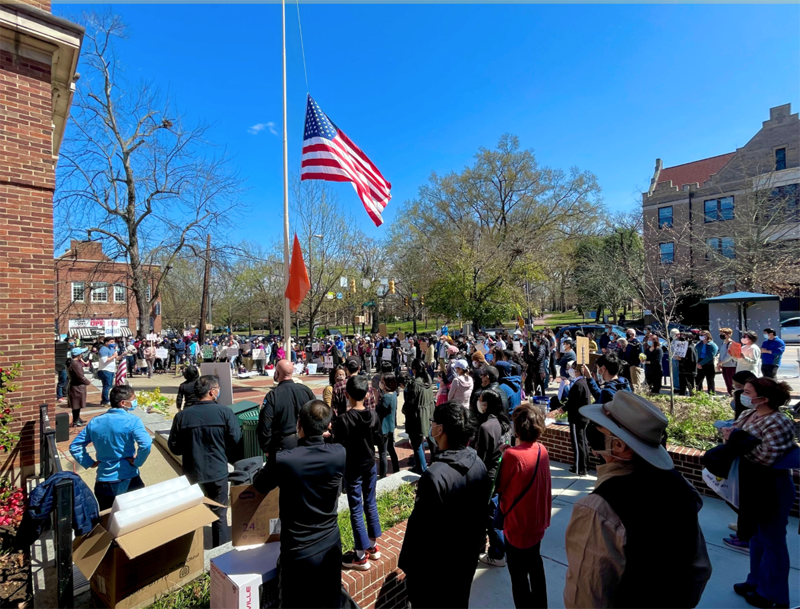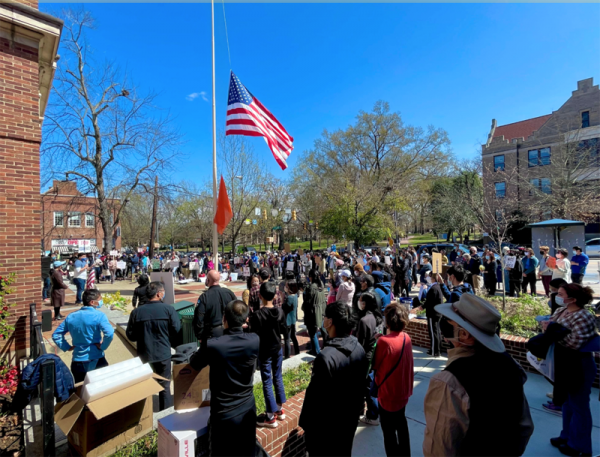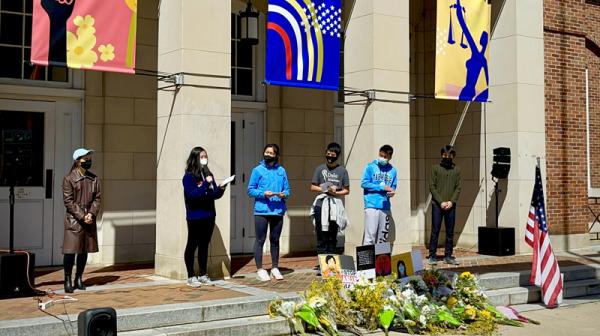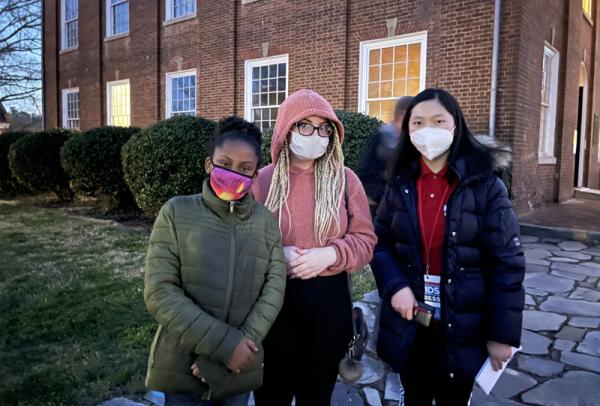KID REPORTERS’ NOTEBOOK
Speaking Out Against Anti-Asian Violence


A vigil on the campus of the University of North Carolina at Chapel Hill honored the victims of the Atlanta shooting.
On March 17, eight people were killed in Atlanta, Georgia, including six Asian American women. It is not known what led to the shootings. But the horrific crime called attention to an increase in the number of anti-Asian attacks during the pandemic.
In February, a 64-year-old Vietnamese American grandmother was robbed in San Jose, California. She was preparing to celebrate Lunar New Year with her family. An 84-year-old Thai American man was killed in San Francisco during his morning walk. And in New York City, a Filipino American man was stabbed.
The United States has a long history of discrimination against Asian Americans. In the late 1800s, for example, people from China were banned from entering the country. In the 1940s, after Japan attacked Pearl Harbor, an estimated 120,000 Japanese Americans were imprisoned in isolated camps. The majority of them were U.S. citizens who had become the object of hate and suspicion simply because of their ancestry.
In March 2020, after the coronavirus was detected in China, then President Donald J. Trump referred to COVID-19 as “the Chinese Virus.” People in the U.S. began to attack and ridicule Asian Americans, wrongly blaming them for the pandemic.
According to the Center for the Study of Hate and Extremism, in 16 U.S. cities, anti-Asian hate crimes rose by nearly 150% in 2020. At the same time, hate crimes overall dropped by 7%. A reporting database called Stop AAPI (Asian American and Pacific Islander) Hate found that women are twice as likely to be victims of anti-Asian hate incidents as men. Members of the AAPI are taking action, holding protests and calling for an end to the violence.
As President Joseph R. Biden said on the one-year anniversary of the pandemic: “Asian Americans . . . have been attacked, harassed, blamed, and scapegoated. At this very moment, so many of them, our fellow Americans—they’re on the front lines of the pandemic trying to save lives and still, they’re forced to live in fear for their lives just walking down the streets in America. It’s wrong. It’s un-American. And it must stop.”

Teresa addresses the audience on the UNC campus.
“ENOUGH IS ENOUGH”
Kelly Yang, the author of Front Desk and other best-selling novels for young people, knows what it feels like to be the target of hate speech. Yang held free weekly writing lessons for kids and teens on Instagram over the summer. During one of her live broadcasts, someone typed “Chinese virus.” Yang was shocked, but she later decided to speak out.
“I think having more discussions and conversations will hopefully open up more of those conversations,” Yang told me from her home in California. “And hopefully books like Front Desk . . . will humanize us and let us regain that sense of who we are and our contributions to this country.”
Yang believes that it’s important for people to express their pain and anger. “What we’re seeing now is finally Asian Americans are using our voices and saying, ‘Enough is enough,’” she said. “I think we’re finally at the tipping point where we don’t want to put up with this anymore.”

Teresa with Naljah Jones (left) and Madison Dorobiala (center) at an AAPI event in Hillsborough, North Carolina
“IT’S NOT FAIR”
Communities across the country recently held vigils and tributes for the eight people killed in Atlanta. As a representative of Asian American youth, I was invited to speak at a vigil hosted by the AAPI community on the campus of the University of North Carolina at Chapel Hill.
“We work hard for our country,” I told the attendees. “We fight for our country. We live for our country. We deserve to be treated with dignity and respect. We are American.”
At another vigil in nearby Hillsborough, I talked with one of the speakers there, Kumar Sathy. He is a fifth-grade teacher at Hillsborough Elementary School.
“As an Asian American, I don’t know how I’m going to talk about racism with my students,” Sathy said. “But I’m going to be honest with the fact that these were racially-motivated killings, and to me that is undeniable. People lost their lives because of the way they look. And that needs to stop.”
I also got the perspective of two students who attended the vigil. “I came to this event because I’m very sad that people died,” said 11-year-old Naljah Jones, who is African American. “We should remember these people.”
Madison Dorobiala, 14, wanted her voice to be heard, too. “This all needs to stop,” she said, “because it’s not fair.”
